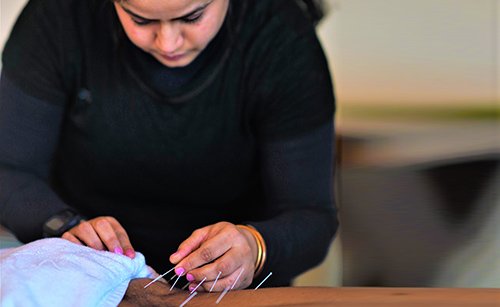


Cognitive Behavioral Therapy (CBT) is a crucial part of the addiction treatment process at Sanctum. We give you the best chances of recovering from addiction, so we use methods that work. There are many facilities that only use philosophies without any type of scientific backing. Cognitive behavioral therapy is evidence-based, which is a vital component of treatment.
Cognitive behavioral therapy (CBT) is based on the theory that how people think affects how they act and feel. It focuses on correcting the thoughts to improve how people perceive events and feel in certain situations. Cognitive behavioral therapy (CBT) is a form of psychological treatment that has been demonstrated to be effective for a range of problems including depression, anxiety disorders, alcohol and drug use problems, marital problems, eating disorders, and severe mental illness.














